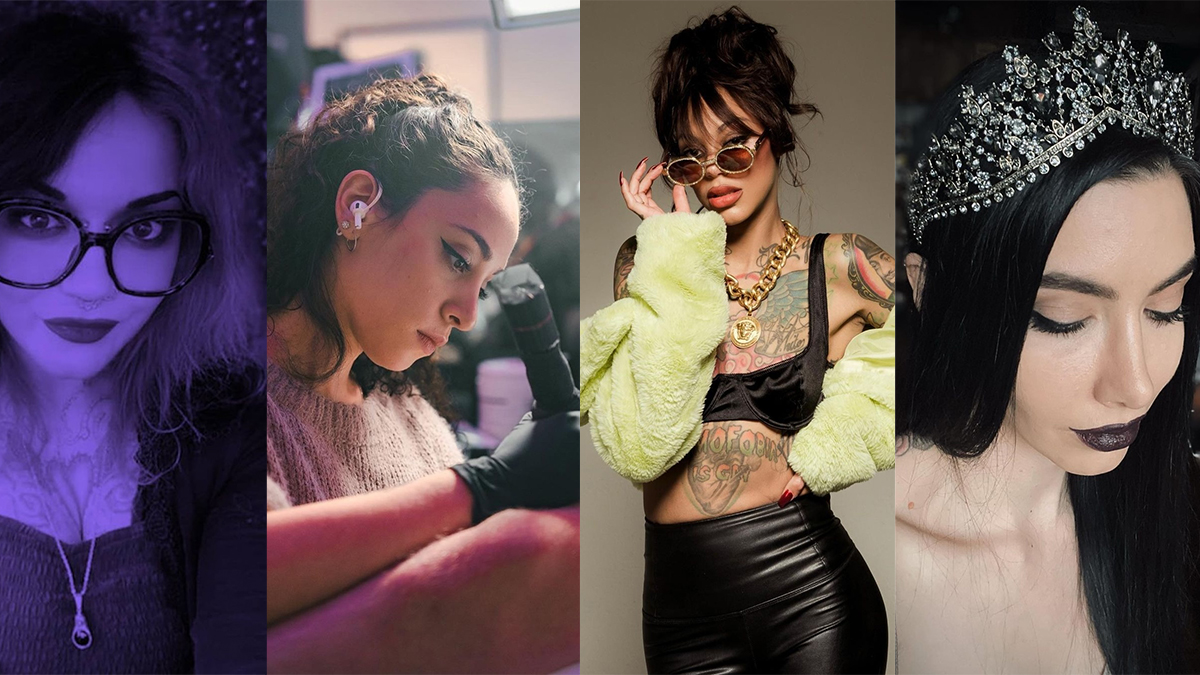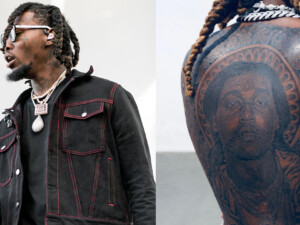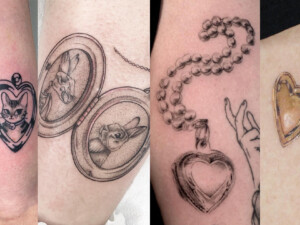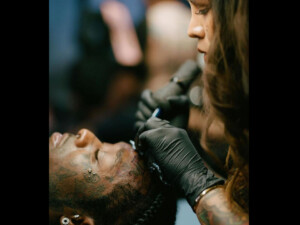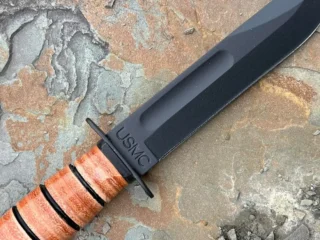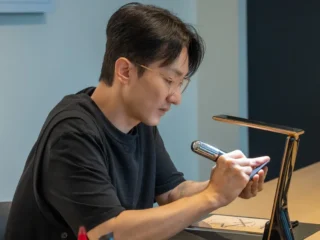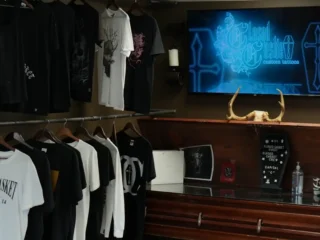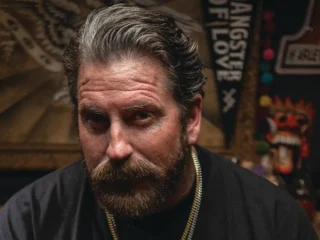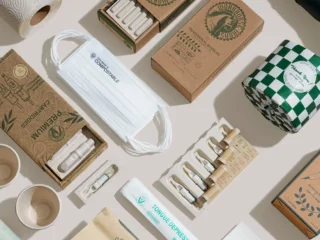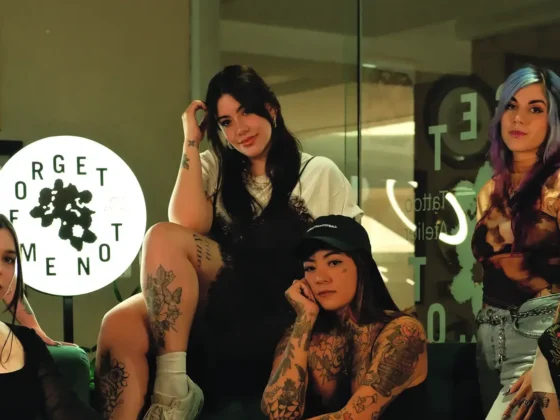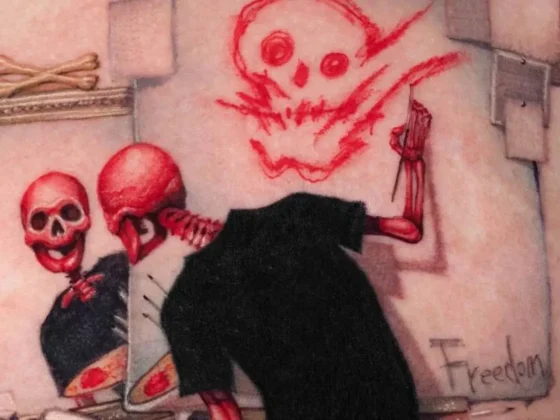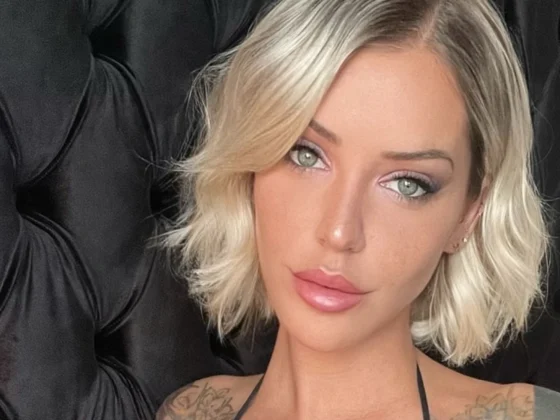Sophia Tan
March 28th, 2023
Female Tattooers Don’t Seek Approval, They Make Their Own Lane
Despite being in a male-dominated space, these women never faltered in their drive to become powerful forces within the tattoo community
Making it in a creative industry is hard enough, but having to prove yourself 10 times over to gain recognition as a woman is the icing on top of the rigged cake. Since the modern landscape of tattooing materialized over 200 years ago, women have bore the brunt of resistance, belittlement and misogyny in the industry. For some, the struggle to find acceptance was too much and they gave up, but many of these artists stayed focused on achieving excellence in their craft, rising to the very top of the industry. We spoke to a group of female artists—some who have been in the industry for over a decade while others are still relative newcomers—allowing them to reflect on their tattoo beginnings and how they’ve watched the tattoo landscape shift to embrace women over the years.
Jess Mascetti, a tattoo artist based in New York City, faced less-than-ideal circumstances when starting out. Mascetti’s tattooing journey goes back to the ‘90s when they lifted the tattoo ban in NYC. “There were a few old school tattooers in that shop that said, ‘Oh, you must be fucking [the shop owners] to be able to snag an apprenticeship,” Mascetti recalls. “Every accomplishment I made for myself with skill, effort, and hard work was looked down upon by these men who did nothing but drink and eat all day and not work on their craft. [They] just attribute everything I ever worked for to using my vagina or my face to get it.”
View this post on Instagram
Kelly Doty, who broke into the industry 16 years ago, recalls those early days with a bittersweet eye. “I had gone to different tattooers and asked them if they wanted an apprentice, but I was so shy and it felt so unwelcoming,” she says. “[The shops] had that walking-into-an-old-saloon kind of feeling.” Add seeing pictures of “hot babes and naked ladies” everywhere into the mix, and it was not a welcoming atmosphere for a woman. Doty also remembers when clients would go through her portfolio, and upon finding out it was her who had done the tattoos, they refused to get tattooed by a girl. “It wasn’t even shocking at that point, that’s just how it was,” she explains.
View this post on Instagram
For Miryam Lumpini, who has been tattooing for two decades, obstacles came in the form of feeling unsafe in her workplace. She learned the hard way to prioritize her comfort when encountering new clients, alluding to those who took it too far in their romantic advances. “I had this client one time,” Lumpini shares, “he flew all the way from Miami. I think he was just so excited he read [the situation] wrong. He kinda laid himself on top of me, and I had to push him away ’cause he was trying to kiss me. And I was like, no, and then he was super awkward and I was just quiet for the rest of the session.”
It takes a certain level of sheer confidence and willpower to emerge stronger from these degrading situations. For Lumpini, finding a loving community on social media was her key to feeling embraced. “I realized before social media that it was definitely harder to gain respect at first,” she reflects. “I kinda had to prove myself on social media in order to gain it.” Lumpini suggests that when she first started out, tattoos were still heavily associated with criminal activity and thus weren’t seen as very “ladylike.” “But now, as technology is becoming easier and you see more female artists, more female designs and females with tattoos, it’s way more accepted,” she says. “Now, I feel like people would actually rather get tattooed by a female who looks pretty than just some random guy at a shop.”
View this post on Instagram
To get through those particularly rough times, Mascetti shifted her perspective to one that better serves her and all women who are experiencing the same hardships. “The men who are giving you shit are intimidated by you,” she asserts. “They don’t want you to succeed. Because they don’t wanna put in the work you’re putting in. They’d rather go out of their way to knock you down than lift themselves up.”
We’ve all grown used to tattoo culture being a toxic space fueled by gatekeeping and intimidation. However, Mascetti proudly observes that this generation of tattoo artists has taken a near 180 from what it used to be when she first started. Gen Z artists are far more open to letting each other in on their knowledge and techniques. “‘Try this ink, this is amazing,’” she repeats from the artists she hears. “‘Use my machine, you’re gonna love it.’ They’re just so [open] with their knowledge, their gifts. And they genuinely have this need and want for everyone to be great together.”
View this post on Instagram
“There’s such an exchange of information,” Doty echoes. “The tattoo art form is moving faster and people are picking up on it quicker. Isn’t that what we all want—progress and expansion of a great art form?”
Deanna Maffeo-Barricella, a resident at Inked NYC, can confirm that it’s much more common for women to have a favorable experience in the industry these days as opposed to just 10 or 15 years ago. “Thankfully, now, there are so many shops that have a lot of female artists,” she says. “If [being in a male-dominated space is] something you’re concerned about, you can research and go where your style will grow. There are a lot of outlets, so maybe just seek one out and feel like you have an ally. You don’t have to go into your corner tattoo shop where it’s just a bunch of really intimidating men anymore. That’s not the only option.”
View this post on Instagram
“The tattoo industry is by no means perfect when it comes to diversity and it has a long way to go, but compared to what it used to be, it is getting miles better,” Doty adds. “I feel like seeing representation through social media is really helpful, and also the fact that it’s no longer a ‘secret society’—people are more willing to share their ideas—and that means the door is open for more people to feel comfortable being a part of it.”
View this post on Instagram
If there’s anything to take away from these womens’ experiences, it’s that perfecting your skills, prioritizing your well-being and being open to sharing knowledge with your community is the key to elevating. Lumpini has found that letting your true self shine through is the secret to rising above all the opposition. “Find yourself, find your style, find your purpose,” she says. “Find who you are within tattooing, what tattoos you wanna do, what do you wanna mark on people forever with and why? If you can really work on those things, I feel like you’ll do great.”
As tattoos grow in popularity, artists should reap the benefits of inclusivity just as much as the clients they work with. Thankfully, the new generation of tattoo artists are intent on making sure this happens, allowing the tattoo community as a whole to continually evolve for the better.
View this post on Instagram
View this post on Instagram
View this post on Instagram
View this post on Instagram
View this post on Instagram
View this post on Instagram
View this post on Instagram
View this post on Instagram
View this post on Instagram
View this post on Instagram
View this post on Instagram
View this post on Instagram
Editor's Picks
Offset Gets a Full Back Portrait In Memory of Takeoff
Offset covered his back with a heartfelt portrait honoring his late cousin
Lovely Locket Tattoos
Lockets are symbols of eternal sentimentality, which make for equally enchanting tattoos
Lil Uzi Vert Reveals Elegant Forehead Tattoo
The flashy trap artist has been on a streak of perplexing tattoos

